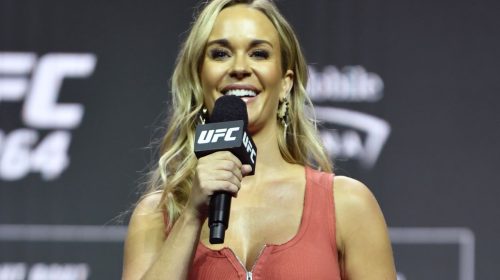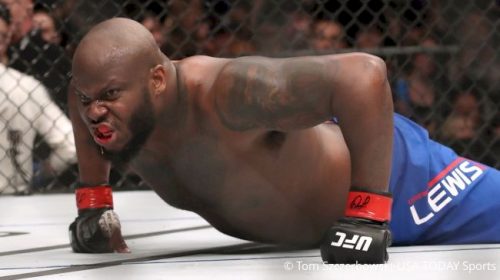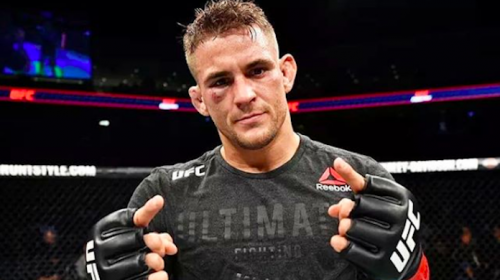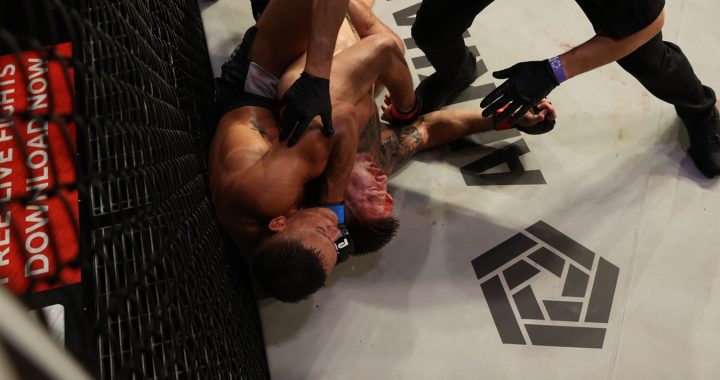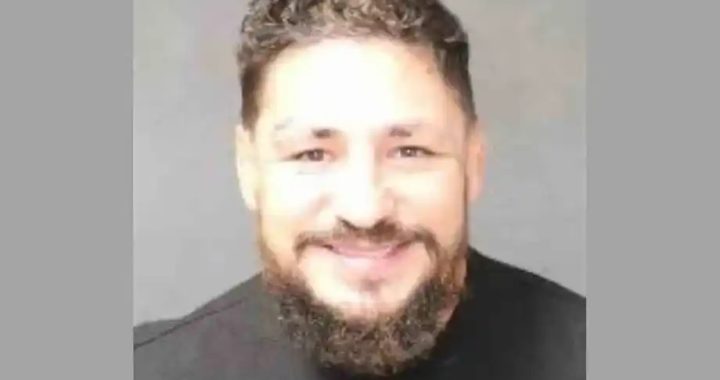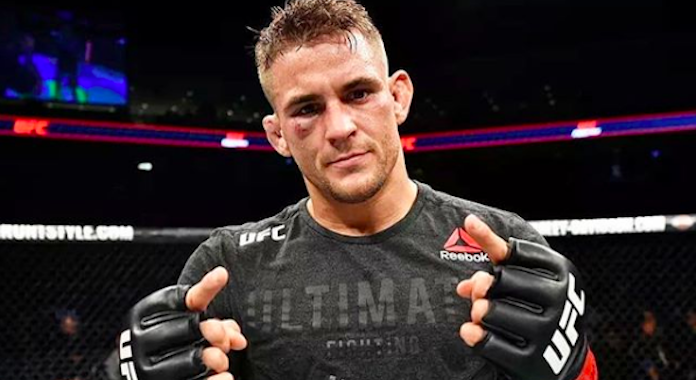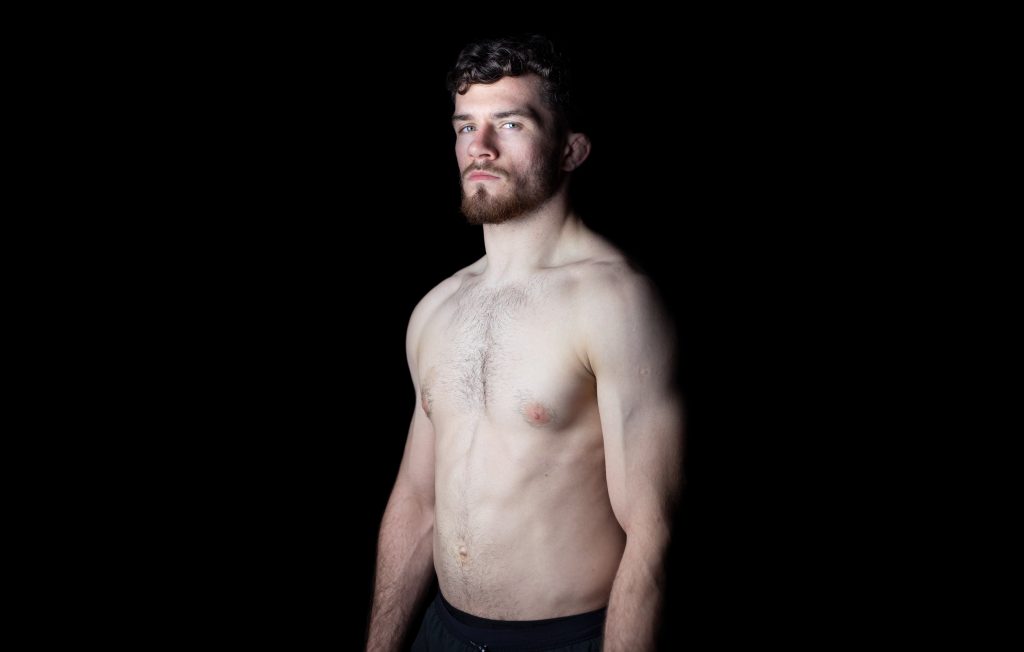
Clan Wars Champion Nathan Kelly Opens Up On Mental Health Journey: “My Mind Was Tortured”
SBG Ireland’s Nathan Kelly made a statement earlier this month when he knocked out Shem Rock to become the new Clan Wars Featherweight Champion. While the performance itself was more than worthy of adulation, it was the hopeful message Kelly shared via his Instagram story in the days after—about mental health, and in particular his own journey—that was most intriguing. For while fans and media alike often bear witness to fighters’ successes in the arena, it is in the dark corners of solitude where a human’s struggles are most critical.
Less than 2 years ago, Kelly sat staring at the four bedroom walls of his Finglas home. His heart pounding and goosebumps rising under the upright hair on his arms, there was a cruel irony in someone so familiar with the surroundings of a locked cage experiencing a usually homely environment more comparable to that of a prison cell.
“My mind was tortured. I just thought ‘what’s the point of being here anymore, if I’m just going to keep feeling like this all the time? What’s the point in me even being here?’” Kelly recalled to MyMMANews.
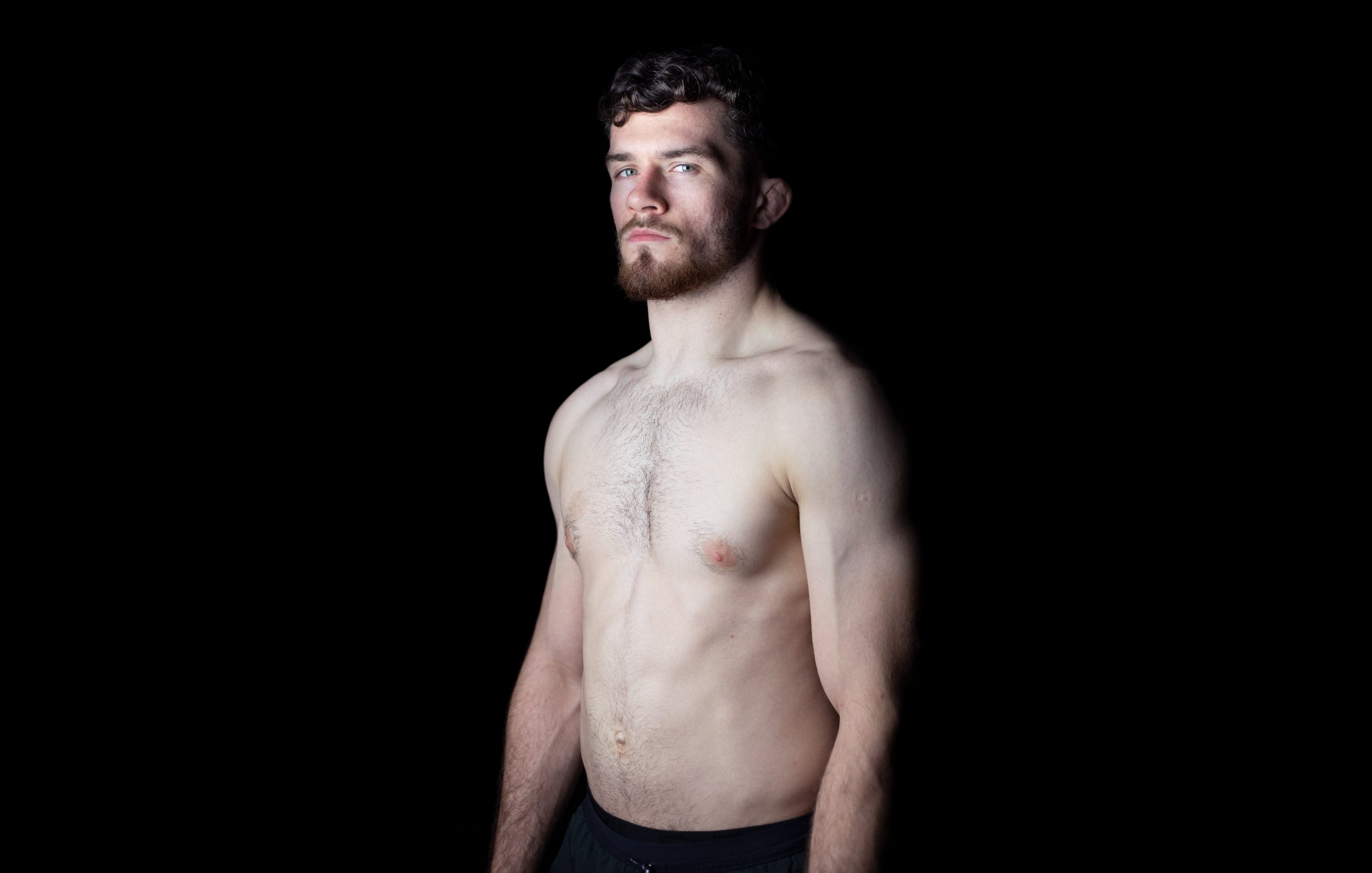
The now 24-year-old Brazilian Jiu Jitsu black belt opened up on the path that led to that “scary thought,” as Kelly describes it. After his former coach decided to stop coaching MMA, Kelly unexpectedly found himself veering away from the sport that had become his way of life for over a decade. Though Kelly initially accepted the change of direction, he quickly learned just how instrumental MMA was to his routine:
“I thought I’d just focus on my Jiu Jitsu and get my black belt. That was my goal. I don’t think I realized how much I needed regular fighting, and how much it had a part to play in my drive, ambition and focus.”
However, without the regular routine of his MMA training, Kelly’s world as he knew it began to unravel before his eyes, and so too did his mental health.
“Because I had no ambition to fight, I lost ambition in life. I’d go out with my mates instead of going to training. I was going out on the weekends more when I’d never go out on the weekends. From there, I was starting to be the person I never wanted to be. The person who wasn’t committed to their sport, the person who wasn’t a high-level athlete. I really enjoyed being a high-level athlete and being a mixed martial artist. I loved the whole journey of it. Suddenly, I wasn’t like that anymore. I was just a guy who trained Jiu Jitsu. There was less discipline involved. I didn’t have a strict diet. I was eating what I wanted, I was drinking what I wanted.”
This sudden turning point wasn’t as simple as an athlete missing their sport, or a turbulent transition from one form of martial art to another. This was an identity crisis for Kelly:
“I made the decision on my first day at 13 years old, this is what I’m going to do for the rest of my life. I’m going to be a professional MMA fighter. I’m going to win titles. Big dreams. And suddenly I’m not an MMA fighter anymore. I’m just doing Jiu Jitsu. My dreams are taken away from me because I’ve let them go. I’ve lost sight of them. That’s when it started to really hit home.”
With the sport that helped shape Kelly through his most formative years now absent from his life, so too was the rigid routine and discipline that supported Kelly in coping with the mental challenges life can present. Soon after, the negative self-talk and inner critic grew louder.
“I started to think I was worthless then. If I’m not even making it in MMA then what am I doing? Also, because I lost my first two pro fights, that also had a part to play in my bad mental health. I thought my career was defined by wins, not losses.”
Kelly continued to routinely train BJJ at his second home, Kyuzo Gym, but the additional focus and discipline that Mixed Martial Arts commands of its athletes was replaced by socializing. Hardly a crime for anyone in their early twenties, but Kelly recalls it as the beginning of a downward spiral for his mental health.
“I was going out drinking on the weekends, partying. Then I was doing it solo, and that’s when it became a problem. That was where I started to spiral from there.”
“I would sit around every day feeling sorry for myself. I would be looking for excuses to act out. I was doing things I shouldn’t have been doing, getting myself into bad situations, all while putting on a brave face and acting like everything was cool. Letting on that nothing was bothering me, that I was okay. Or at least I was ok enough that I didn’t show any emotion.”
Thankfully, the “scary thought” that passed through Nathan’s mind that day in his bedroom in Finglas was more a fleeting moment of despair, rather than any sort of decision to take action.
“I’m not one to say I’m suicidal, that I’m going to kill myself. That’s not the position I was in. It was more so that I didn’t know how much longer I could take of this. Feeling this way. Feeling this shit.”
It was the first (and hopefully last) time Kelly’s mind wandered to such a state, but it served as a wake-up call to begin taking his mental health more seriously.
“That was the first time I had a thought like that, but I felt like that thought was on its way. How bad I felt for those few days before it, I felt like I was gonna hit a breaking point at some point. I was kind of freaking myself out that I was almost preparing to have this thought. Eventually, I did, and I got such a fright.”
“I don’t know what came over me. 2 seconds later, I switched, and I was like ‘fuck me, that was a scary thought to have. What the fuck am I doing here? I need to change myself! I’m too young to be thinking these things, for these thoughts to be going through my head’.
“Fortunately for me, I was lucky enough that it just took that one scenario to change my path. I know other people don’t. I come from a family where people struggle with mental health and addiction. I’ve seen around me the way to not go. That’s what always motivated me as a kid. Suddenly, you lose sight of yourself over time, and it’s you then. And you have to make the decision: do I keep doing what I’m doing, or do I change to not be like the people I never wanted to be like. I did thankfully, and here I am now on the mend, and doing good things for myself.”
Kelly began making positive changes to steer his mental health in a positive direction by reaching out to speak with some of those closest to him, in addition to forming positive behavioral habits including meditation, and a return to MMA training.
“I made the change by reaching out to my friends. I spoke about some of the things with my Da. At the time, my coach, Barry, told me to go see a doctor. I didn’t really have that good of an experience at the doctor, so I just kind of left it and started doing my own things. I found my own ways of dealing with mental health. I started practicing meditation. Focusing on my breathing a lot. Put more time into my diet. Put more time into my training. Put more time into myself. Started doing good things for myself, putting myself first. I gradually got back on track, day by day. Had bad days. Had good days. Had bad days. But you just keep going and believe in it.”
After finding a new gym at SBG Ireland in 2020, Kelly is once again fully immersed in his MMA training and lifestyle. Most importantly, he is in a better mental space. In August 2020, Kelly was awarded his BJJ black belt from his long-time coach Barry Oglesby. 2021 has seen the Dubliner earn consecutive 1st-round KO victories inside the cage, most recently collecting the Clan Wars featherweight title. Though it hasn’t been plain sailing for the young pro the last couple of years, he is grateful for where his journey has brought him.
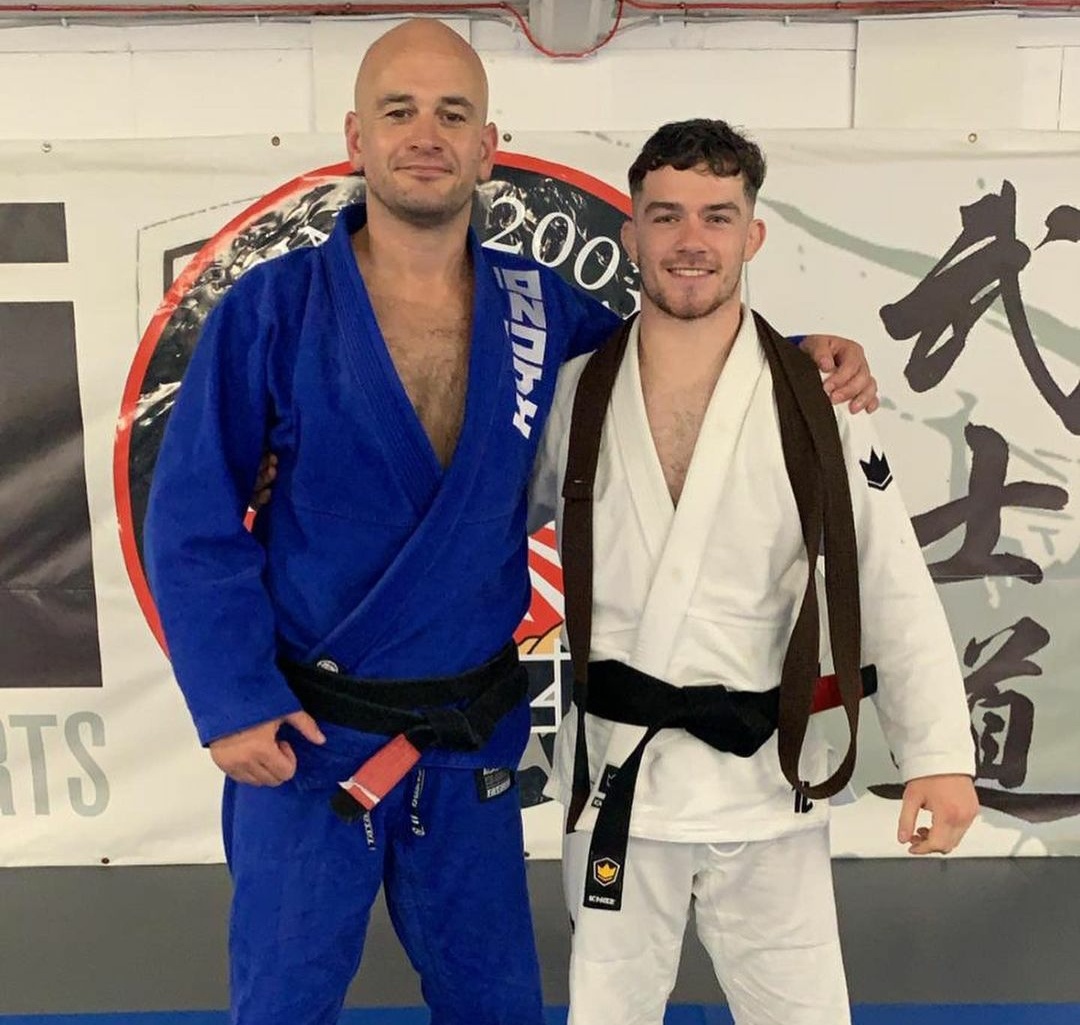
“I’ve come a long way. Because of what happened to me, I’m a very grounded person. I’m very level headed. I won the fight at the weekend. I won the title. I’m happy. To say I’m happy would be a lie, I’m really happy! I’m happy for myself. I’m really happy for my family. They’re all proud of me, they all love to see me doing well. So, I’m glad that it’s making them happy too. It’s a good feeling all around!”
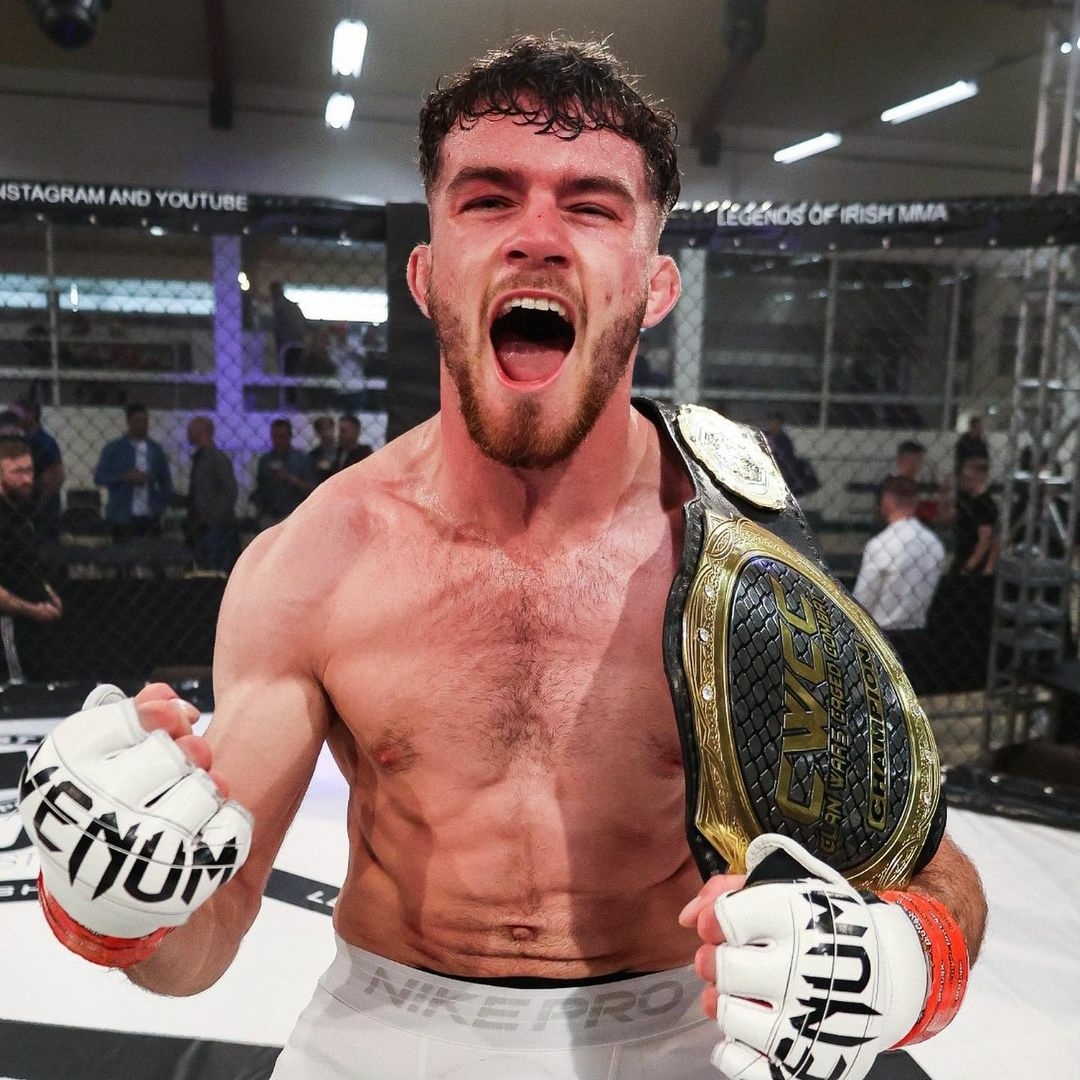
“From that fright, it’s turned me into a completely different person, into the man I am today. I wouldn’t be here right now if I didn’t use that scare to my advantage. Here I am, winning titles now. It’s the power of the mind. Believe in yourself. Big yourself up. Trust in your own process and you will reap the rewards. I’m proof of that.”
Knowing all too well the dangers poor mental health can pose to people if left to fester without reaching out for help, Kelly is eager to share his own story in the hope that others may find strength from it and make positive changes in their own lives by seeking help.
“If I can do anything good as well as fight, I might be able to speak out and do some nice things for others. To just share a story for others, show that even me, I’m not a superhero or anything. I’ve been down a lot, more than I have up. I’m only slowly starting to get the highs again from the good feelings. It was a long two/three years to get here, but I’m here now and I’m ready to move forward with my career in a positive state of mind.”
“Anything that’s going on in your head can be resolved.”
